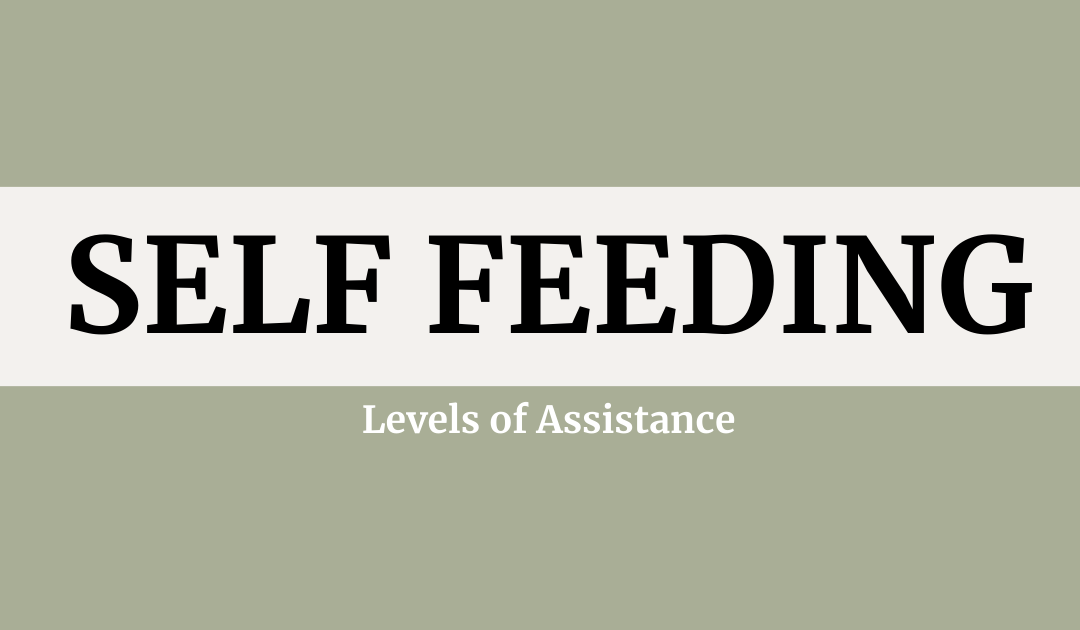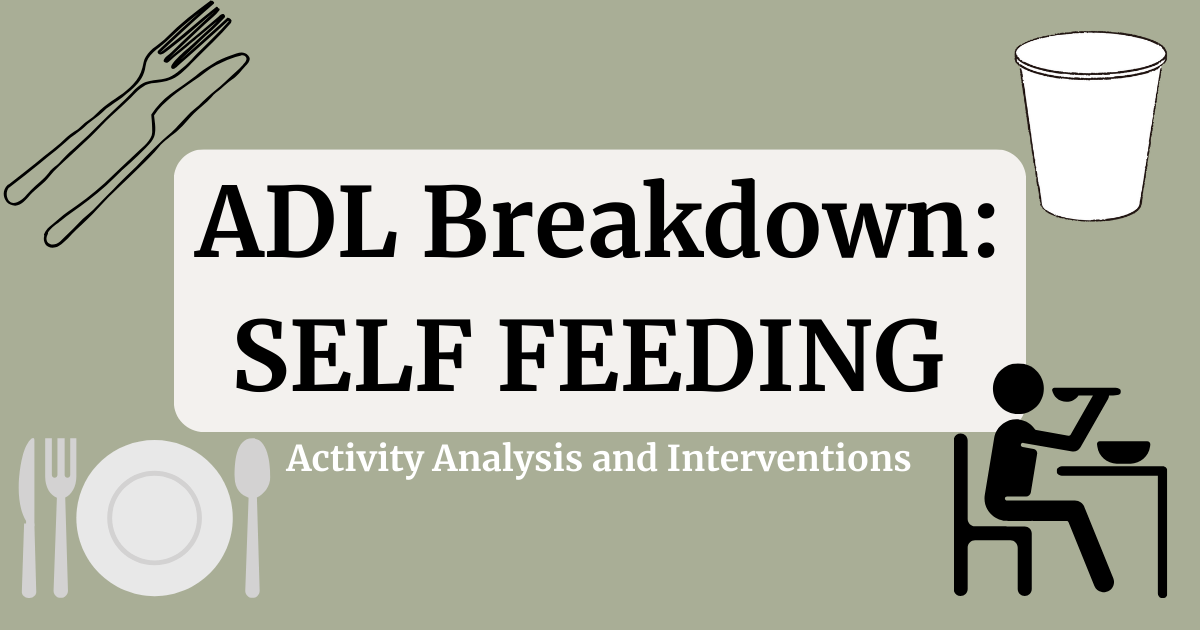Evaluation
Explanations of common assessment and screening tools. Tips for implementation and interpretation. Considerations for evaluations based on diagnoses. Tips for goal setting and goal updating.
Toileting Breakdown: Activity Analysis and Interventions
Toileting skills are essential for maintaining independence and overall quality of life, and occupational therapists play a crucial role in helping individuals develop and improve these skills. Toileting includes 3 main components: transfer, clothing management, and personal hygiene.

How to Determine Level of Assistance for Self Feeding
Self-feeding is part of a broader set of self-care skills. For goal setting or tracking progress with a certain task, it is important to understand how to appropriately determine the level of assistance a person requires.

Self Feeding Breakdown: Activity Analysis and Interventions
Self Feeding Overview Self-feeding is an essential daily living skill that occupational therapists often work on with individuals who may have difficulty due to physical, cognitive, or sensory impairments. To promote independence in self-feeding, therapists assess and...

ADLs and IADLs
Occupational therapists have a unique understanding of ADLs and IADLs including how to evaluate them and how to help people become more independent in performing them. This is what makes our role so important in a variety of settings.

Sternal Precautions and Occupational Therapy
Occupational therapists are key to helping patient’s regain functionality and independence post cardiac surgery. Providing clear and practical information on how to adapt daily activities and mobility tasks is important to achieve this goal. This article provides the basic information required to explain sternal precautions and assess compliance during an evaluation.